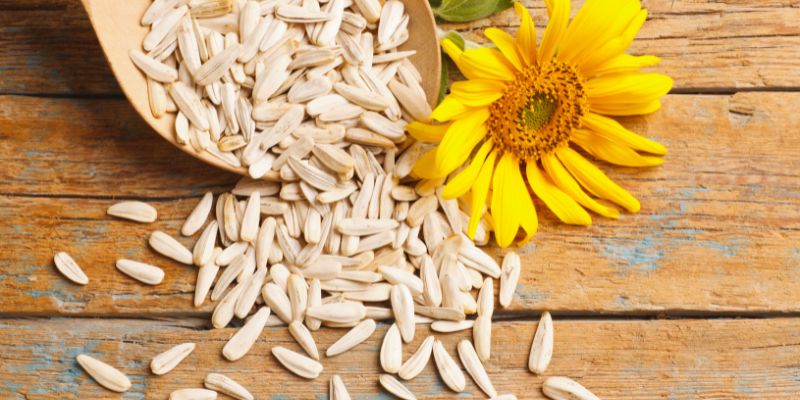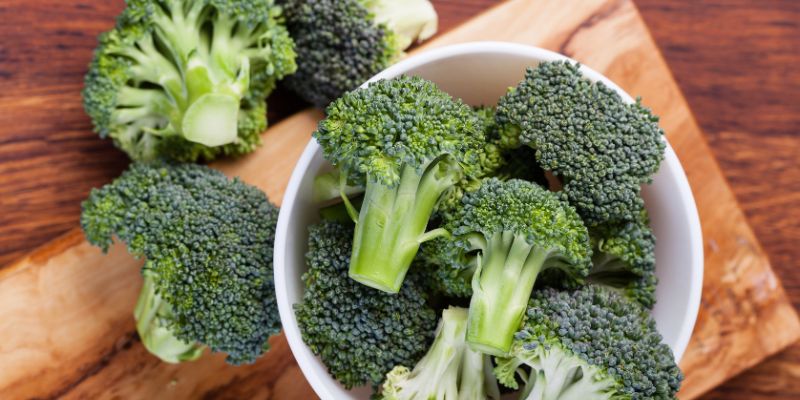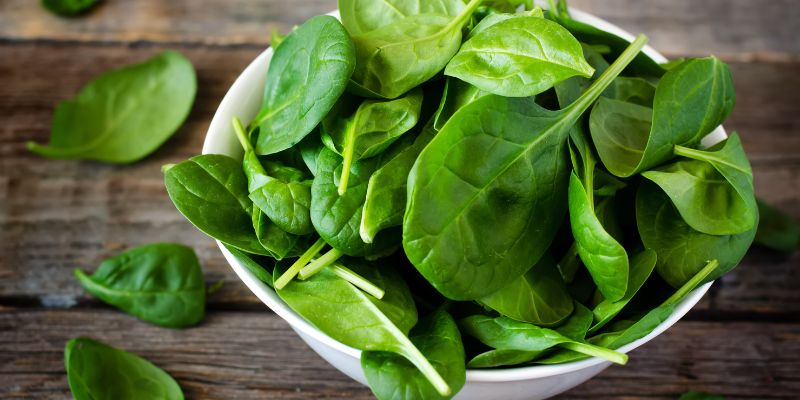Introduction
Welcome to the crunchy world of sunflower seeds! These tiny powerhouses of nutrition often fly under the radar, but once you crack into their potential, you’ll discover a treasure trove of health benefits and culinary versatility. In this article, we’ll delve into the sunny side of sunflower seeds, exploring their nutritional profile, health perks, and creative ways to incorporate them into your daily diet.
Sunflower seeds, harvested from the vibrant blooms of the sunflower plant, pack a surprising punch of nutrients in each tiny kernel. Rich in healthy fats, protein, fiber, vitamins, and minerals, these little seeds offer a concentrated source of essential nutrients that can contribute to overall wellness. From supporting heart health with their unsaturated fats to promoting digestive regularity with their fiber content, sunflower seeds are nutritional gems deserving of a place in your pantry.
But it’s not just about nutrition – sunflower seeds also bring a delightful crunch and nutty flavor to a variety of dishes. Whether sprinkled over salads and yogurts, blended into creamy spreads, or baked into hearty bread, there are countless ways to enjoy the wholesome goodness of sunflower seeds in your meals.

Find The Best around the world
Australia
Canada
France
Germany
India
Italy
Japan
Netherlands
Singapore
Spain
Sweden
UAE
UK
USA
Tips for choosing the right Sunflower Seeds for you
When it comes to selecting sunflower seeds, navigating the array of options available can feel like exploring a sun-drenched field. From raw to roasted, shelled to unshelled, organic to conventional, the choices can be overwhelming. Fear not, for in this buyer’s guide, we’ll shed light on the various types of sunflower seeds, certifications to look for, ingredients to avoid, and where to source these nutritious kernels.
Types of Sunflower Seeds:
Raw Sunflower Seeds: These are unprocessed seeds straight from the sunflower plant, with their natural flavors and nutrients intact. They are versatile and can be used in recipes ranging from salads to baked goods.
Roasted Sunflower Seeds: Roasting brings out the nutty flavor and crunchy texture of sunflower seeds. They are available salted or unsalted, providing a satisfying snack option.
Shelled Sunflower Seeds: Shelled sunflower seeds have had their hard outer hull removed, making them convenient for snacking and incorporating into recipes without the need for shelling.
Unshelled Sunflower Seeds: These seeds are still encased in their protective hulls, requiring shelling before consumption. While they may require more effort, unshelled sunflower seeds can be fun to crack open and enjoy.
Certifications to Look For:
Organic Certification: Look for sunflower seeds that are certified organic, indicating they have been grown without synthetic pesticides, herbicides, or genetically modified organisms (GMOs).
Non-GMO Project Verified: This certification ensures that the sunflower seeds have been tested and verified to be free of genetically modified ingredients.
Fair Trade Certification: Choosing sunflower seeds with fair trade certification supports ethical and sustainable farming practices, ensuring fair wages and working conditions for farmers.
Ingredients to Avoid:
When selecting packaged sunflower seeds, it’s important to check the ingredient list for any additives or harmful ingredients. Avoid products containing:
Artificial Flavors or Colors: Opt for sunflower seeds that are free from artificial flavors or colors, as these additives provide no nutritional value and may have negative health effects.
Excessive Salt or Added Sugars: While a sprinkle of salt can enhance the flavor of roasted sunflower seeds, be mindful of products that contain excessive amounts of salt or added sugars, as they can contribute to health issues like high blood pressure and obesity.
Hydrogenated Oils: Some packaged sunflower seeds may contain hydrogenated oils, which are trans fats that have been linked to heart disease and other health problems. Choose products that use healthier oils like sunflower oil or olive oil.
Sources
Bulk Bins: Many grocery stores offer bulk bins where you can purchase sunflower seeds by weight. Buying in bulk allows you to control the quantity and reduces packaging waste.
Local Farmers Markets: Support local farmers by purchasing sunflower seeds from farmers markets, where you can find fresh, locally sourced products.
Online Retailers: Online retailers offer a wide selection of sunflower seeds, including organic and specialty varieties. Read reviews and check product descriptions to ensure quality and authenticity.
Benefits of using Sunflower Seeds
boneSunflower seeds may be small, but they pack a mighty punch when it comes to health benefits. Packed with essential nutrients, these tiny kernels offer a wide array of advantages that contribute to overall wellness. Let’s explore the sunny side of sunflower seeds and uncover the plethora of health benefits they have to offer.
Nutrient Powerhouse: Despite their small size, sunflower seeds are loaded with essential nutrients. They are particularly rich in vitamin E, an antioxidant that helps protect cells from damage caused by free radicals. Just a quarter cup of sunflower seeds provides over 80% of the recommended daily intake of vitamin E, making them one of the best sources of this important nutrient.
Heart Health: Sunflower seeds contain heart-healthy fats, including monounsaturated and polyunsaturated fats. These fats can help lower LDL cholesterol levels and reduce the risk of heart disease when consumed as part of a balanced diet. Additionally, the presence of phytosterols in sunflower seeds may further contribute to heart health by lowering cholesterol absorption in the body.
Rich in Magnesium: Magnesium is an essential mineral involved in over 300 biochemical reactions in the body, including energy production, muscle function, and bone health. Sunflower seeds are an excellent source of magnesium, with just one ounce providing nearly 25% of the recommended daily intake. Consuming magnesium-rich foods like sunflower seeds may help reduce the risk of conditions such as high blood pressure, heart disease, and type 2 diabetes.
Bone Health: In addition to magnesium, sunflower seeds are rich in other bone-boosting nutrients like phosphorus and manganese. These minerals play a crucial role in maintaining strong and healthy bones. Incorporating sunflower seeds into your diet may help support bone density and reduce the risk of osteoporosis and fractures, especially as you age.
Anti-inflammatory Properties: Chronic inflammation is linked to a variety of health conditions, including heart disease, arthritis, and certain types of cancer. Sunflower seeds contain compounds with anti-inflammatory properties, such as Vitamin E, Selenium, and phenolic acids. Including sunflower seeds in your diet may help reduce inflammation in the body and lower the risk of inflammatory diseases.
Blood Sugar Control: Sunflower seeds have a low glycemic index, meaning they cause a slower and more gradual increase in blood sugar levels compared to high-glycemic foods. This makes them an excellent snack option for individuals with diabetes or those looking to manage their blood sugar levels. The combination of protein, fiber, and healthy fats in sunflower seeds also helps promote satiety and prevent blood sugar spikes.
Support Brain Health: The brain relies on a steady supply of nutrients to function optimally, and sunflower seeds can contribute to brain health in several ways. The high vitamin E content in sunflower seeds may help protect brain cells from oxidative stress and age-related cognitive decline. Additionally, the presence of choline, a nutrient found in sunflower seeds, is essential for brain development and neurotransmitter function.
Weight Management: Despite their small size, sunflower seeds are surprisingly satiating due to their combination of protein, fiber, and healthy fats. Including sunflower seeds in your meals or snacks can help keep you feeling full and satisfied, reducing the likelihood of overeating and aiding in weight management efforts.
Do you represent a health, nutrition, beauty, or fitness brand?
Share your brand story, and its philosophy with our millions of readers looking for the highest quality products for their well-being. We understand that your products cater to the unique needs of an individual; here’s your opportunity to share the purpose and unique value proposition of your products that you’ve so caringly created for their well-being.
Share your brand story
Are you a health, nutrition, beauty or fitness expert?
Inviting all health, fitness, beauty, and wellness experts from around the world to join Zotezo, the ultimate trust commerce platform, and empower millions to make the right decisions for their wellbeing. Share your knowledge, review the highest quality products, and provide valuable insights to our engaged audience. Together, let's create a healthier, happier world!
Join our expert advisory board
Conclusion
In conclusion, sunflower seeds are not just a snack; they’re a nutritional powerhouse bursting with health benefits. From their rich array of vitamins, minerals, and healthy fats to their versatility in culinary applications, sunflower seeds offer something for everyone looking to boost their health and well-being.
Whether you’re seeking to support heart health, maintain strong bones, or manage blood sugar levels, sunflower seeds have you covered. Their high content of vitamin E, magnesium, and other essential nutrients makes them an excellent addition to any diet. Plus, their anti-inflammatory properties and potential to support brain function further highlight their importance in promoting overall health.
Beyond their nutritional benefits, sunflower seeds also add a delightful crunch and nutty flavor to a variety of dishes. From salads and soups to baked goods and smoothies, the possibilities are endless when it comes to incorporating sunflower seeds into your meals and snacks. Their versatility makes them a convenient and delicious way to boost the nutritional value of your favorite recipes.
Whether you enjoy them raw, roasted, shelled, or unshelled, sunflower seeds offer a convenient and satisfying snack option that’s perfect for any occasion. Whether you’re hiking, working, or simply relaxing at home, a handful of sunflower seeds can provide a quick and nutritious pick-me-up to keep you fueled and satisfied throughout the day.




